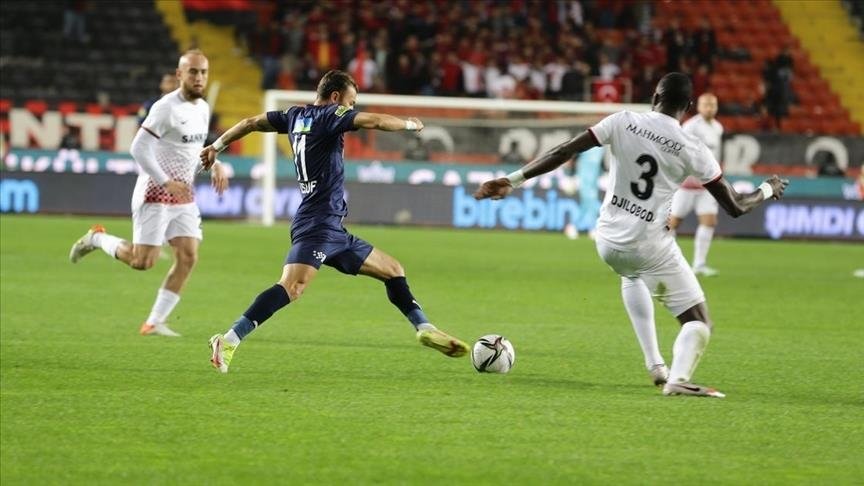Safe Fixed Bets Winning
Safe Fixed Bets Winning
Fixed Match Today
Day: Friday Date: 14.03.2025
First Match: Nice – Auxerre | Tip: Over 1.5 | Odds: 1.22 | Result: 1:1 | LINK | WON
Second Match: St. Pauli – Hoffenheim | Tip: Over 1.5 | Odds: 1.20 | Result: 1:0 | LINK |
Third Match: Almere City – NAC Breda | Tip: Over 1.5 | Odds: 1.30 | Result: 1:1 | LINK | WON
Day: Thursday Date: 13.03.2025
First Match: Lyon – FCSB | Tip: Over 1.5 | Odds: 1.25 | Result: 4:0 | LINK | WON
Second Match: Lazio – Plzen | Tip: Over 1.5 | Odds: 1.25 | Result: 1:1 | LINK | WON
Third Match: Djurgarden – Pafos | Tip: Over 1.5 | Odds: 1.40 | Result: 3:0 | LINK | WON
Day: Wednesday Date: 12.03.2025
First Match: Lille – Dortmund | Tip: 1X | Odds: 1.50 | Result: 1:2 | LINK |
Second Match: Aston Villa – Club Brugge KV | Tip: Over 1.5 | Odds: 1.22 | Result: 3:0 | LINK | WON
Third Match: Atl. Madrid – Real Madrid | Tip: Over 1.5 | Odds: 1.22 | Result: 1:0 | LINK |
E-mail support: fixedmatchgloball@gmail.com
WhatsApp support: +1 (508) 939-3661
Username for Telegram: @fmatchglobal
Football Correct Score Matches
Nuno Mendes has swiftly established himself as one of the most promising left-backs in European football. His rapid rise from Sporting CP’s academy to becoming a key player for Paris Saint-Germain (PSG) and the Portuguese national team highlights his exceptional talent. With his attacking mindset, defensive awareness, and technical skills, he continues to make a significant impact on the pitch.
Born on June 19, 2002, in Sintra, Portugal, Nuno Alexandre Tavares Mendes displayed his footballing ability from an early age. Growing up in a football-loving nation, he honed his skills on the streets and local pitches before catching the attention of Sporting CP’s scouts. His inclusion in their academy marked the beginning of an incredible journey toward professional football. Many bettors search for Safe Fixed Bets Winning to increase their chances of making profits.
Strong Soccer Predictions Tips
Sporting CP’s renowned youth academy has produced some of Portugal’s greatest players, including Cristiano Ronaldo and Luís Figo. Mendes quickly adapted to the club’s rigorous training environment and showcased his ability to play both as a left-back and a wing-back. His performances at the youth level impressed the coaching staff, leading to his promotion to the senior squad in 2020.
During the 2020–21 season, Nuno Mendes emerged as a crucial figure in Sporting CP’s defense. His pace, dribbling skills, and tactical intelligence allowed him to contribute both defensively and offensively. As a result, he played an instrumental role in helping Sporting CP secure their first Primeira Liga title in 19 years. His consistent displays earned him recognition across Europe, attracting interest from top clubs.
Daily Betting Football Matches Tips
Paris Saint-Germain recognized his potential and secured his services on a loan deal in the summer of 2021. His arrival in Ligue 1 presented him with the opportunity to compete at a higher level and develop under the guidance of experienced professionals. Mendes quickly adapted to the demands of French football and impressed with his performances on the left flank. It is important to verify sources before trusting any platform that promotes Safe Fixed Bets Winning.
After an impressive loan spell, PSG exercised their option to sign him permanently in 2022. His seamless integration into the squad demonstrated his ability to adapt and thrive in a competitive environment. Playing alongside world-class teammates such as Kylian Mbappé, Lionel Messi, and Neymar further enhanced his development and confidence.

Sure winning fixed Matches today
One of Nuno Mendes’ standout qualities is his attacking prowess. Unlike traditional full-backs who primarily focus on defending, he embraces an aggressive approach, frequently making overlapping runs and delivering dangerous crosses. His ability to stretch the opposition’s defense and contribute to goal-scoring opportunities makes him a valuable asset for any team. Betting on US Soccer Fixed Matches is risky and can lead to legal consequences, as match-fixing is strictly prohibited.
Defensively, he possesses remarkable composure and positional awareness. His pace enables him to recover quickly, while his tackling and interception skills allow him to neutralize attacking threats. His defensive intelligence ensures that he remains a reliable presence in high-pressure situations, making him one of the most well-rounded left-backs in modern football.
Soccer Predictions Tips 1×2
Internationally, he has become an integral part of the Portuguese national team. Since making his senior debut in 2021, he has earned numerous caps and participated in major tournaments such as the UEFA European Championship and the FIFA World Cup. His contributions on the international stage have solidified his reputation as a dependable and dynamic full-back. Many betting forums discuss Safe Fixed Bets Winning, but not all shared tips are reliable.
Despite his young age, Mendes continues to demonstrate remarkable maturity and professionalism. His work ethic and dedication to improving his game reflect his ambition to reach the highest level. With every match, he refines his technique, enhances his tactical understanding, and strengthens his physical attributes.
His performances have drawn comparisons to some of the best left-backs in history. Many football analysts believe he has the potential to surpass his predecessors and redefine the role of a modern full-back. His additionally blend of defensive solidity, attacking flair, and tactical intelligence makes him a unique talent in today’s game.
HT FT Fixed Matches
As he progresses in his career, he remains focused on achieving greater success with PSG and the Portuguese national team. Winning domestic and international trophies remains a key ambition, and his relentless pursuit of additionally excellence positions him as a future leader in world football. His ability to handle pressure and consistently deliver top performances showcases his elite mentality.
Beyond his on-field brilliance, Mendes serves as an inspiration for aspiring footballers. His journey from a humble background to the pinnacle of European football exemplifies the power of hard work, resilience, and determination. Young players look up to him as a role model who embodies the values of discipline and perseverance.
Looking ahead, the football world eagerly anticipates his continued rise. With his immense potential, technical abilities, and strong mentality, Nuno Mendes is destined for greatness. As he continues to evolve and refine his skills, he will undoubtedly leave an indelible mark on the sport and solidify his legacy as one of the finest left-backs of his generation.
Free Fixed Matches No Payment
Nuno Mendes operates as a modern full-back, constantly balancing his defensive duties with attacking responsibilities. His ability to transition swiftly between defense and attack allows his team to maintain width and pressure opponents high up the pitch. Managers appreciate his versatility, as he can function effectively in different formations, whether as a left-back in a back four or as a wing-back in a back three.
Under the tactical setup of PSG, Mendes thrives in a system that encourages full-backs to push forward and contribute offensively. His speed enables him to exploit space behind opposing defenders, and his precise crossing ability ensures he creates quality chances for his teammates. Additionally, his link-up play with the midfield and forward line demonstrates his high football intelligence.
His defensive positioning sets him apart from many young full-backs. He rarely gets caught out of position and reads the game well. When facing elite attackers, he relies on his agility and anticipation to make crucial tackles and interceptions. His defensive skills, combined with his attacking prowess, make him a nightmare for opposing teams. Authorities closely monitor Soccer Fixed Betting USA to prevent match-fixing and maintain the integrity of the sport.
Fixed Matches Big Odds
Despite his impressive skill set, Mendes continues to refine aspects of his game. One area for improvement involves his decision-making in the final third. While his attacking instincts are exceptional, enhancing his crossing accuracy and shot selection would make him an even more potent offensive threat.
Another aspect of his development involves physical endurance. Playing as an attacking full-back requires immense stamina, as he covers large distances throughout a match. Improving his conditioning and strength will help him maintain peak performance levels throughout the season, especially in high-intensity fixtures.
Additionally, adapting to different tactical demands remains a challenge for any young player. Mendes has shown great adaptability at PSG, but continuing to expand his tactical knowledge will allow him to become even more effective under various playing styles and coaching philosophies.
Fixed Bets Big Odds Weekend
As Mendes additionally progresses in his career, his trajectory suggests he will become one of the defining full-backs of his generation. His blend of technical skills, athleticism, and intelligence makes him a player with limitless potential. With continued hard work and dedication, he could eventually be regarded as one of the greatest left-backs in football history. Professional tipsters focus on analysis and statistics rather than claiming to provide Safe Fixed Bets Winning.
For now, his immediate focus remains on excelling with PSG and playing a key role for Portugal in international tournaments. If he continues on his current path, there is little doubt he will achieve even greater success and etch his name among the legends of the sport. Websites claiming to provide USA Fixed Betting Odds Soccer often make unrealistic promises, so caution is necessary before placing bets.
